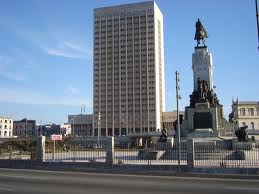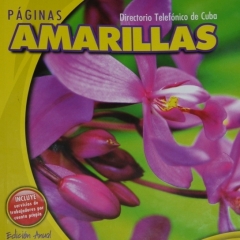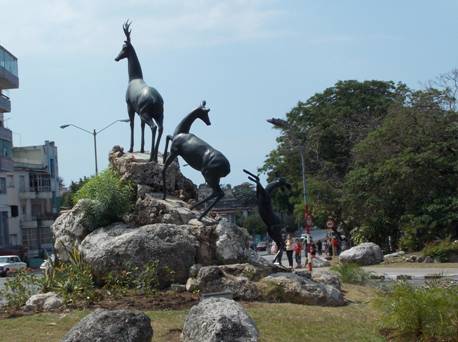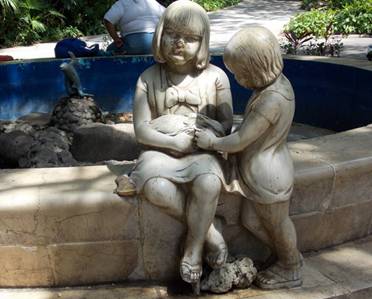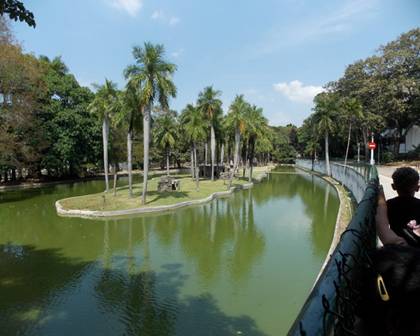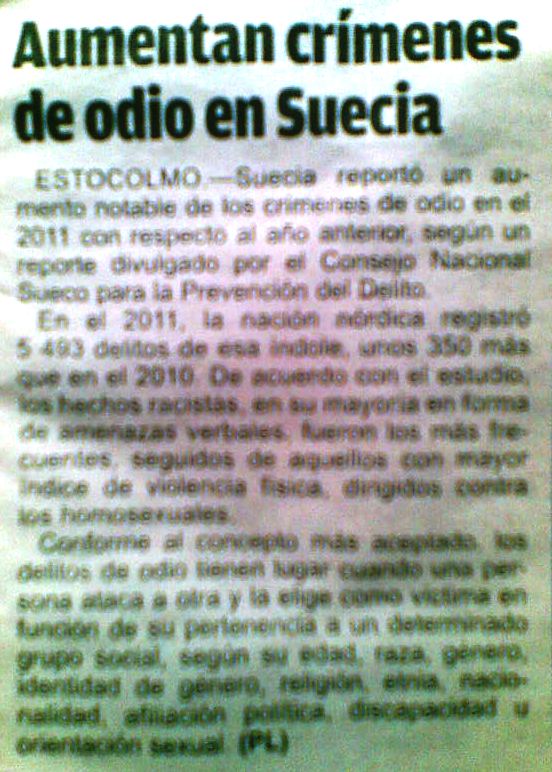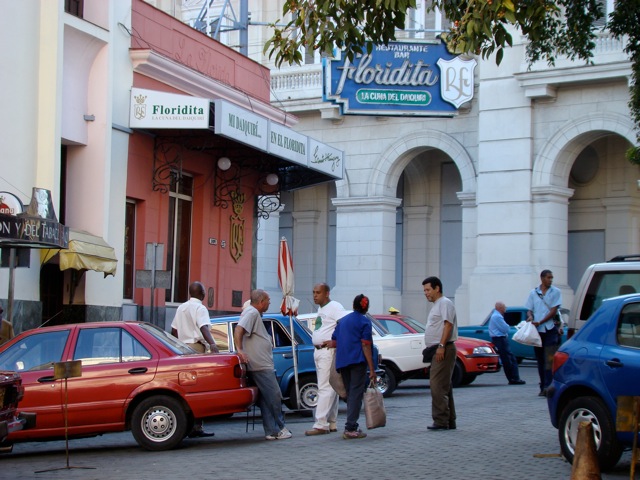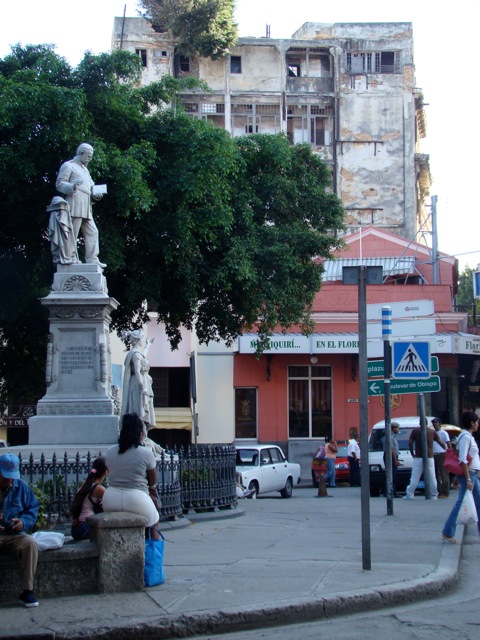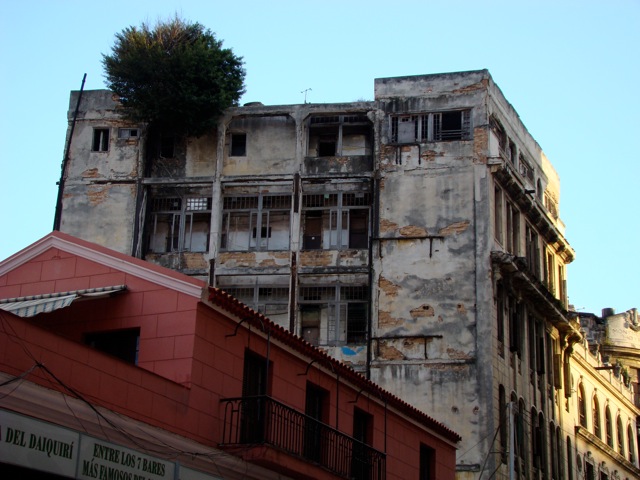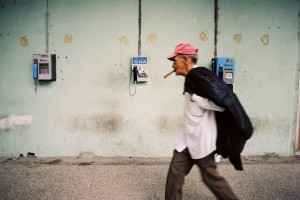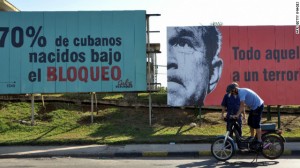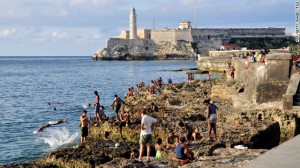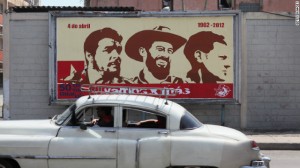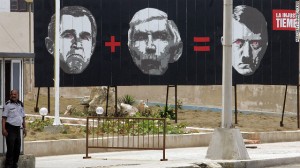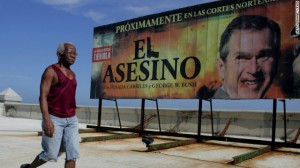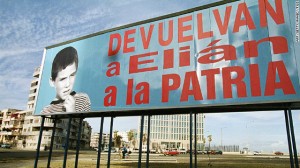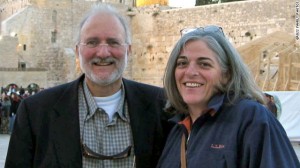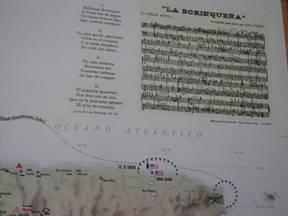Introduction to Yoani Sánchez’s book Havana Real, published in 2011.
By Mary Jo Porter
In 2004, Yoani Sánchez returned to Cuba two years after emigrating to Switzerland, where she and her family had planned to start a new life in a free and democratic country. Explaining a condition of her return, she said:
I promised myself that I would live in Cuba as a free person, and accept the consequences.
This book is one of those consequences.
Yoani was born in 1975 in a tenement in Central Havana to parents who were just a few years older than the Revolution. She inherited her love of books from her father (an engineer on the national railway), worked hard at school, and proudly put the Little Pioneer scarf around her neck, vowing to “Be like Che!”
She was fourteen the Berlin Wall fell and the Soviet Union cut most of its $6 billion annual subsidy to Cuba. Fidel Castro warned the nation that it was facing “a special period in a time of peace.” Yoani’s adolescence was marked by this Special Period, a time of terrible scarcity—when a word, alumbrón, was coined for the unusual situation of electricity being on; when fried grapefruit rinds took the place of meat in the national diet; when, it was rumored, melted condoms sometimes stood in for the cheese on a concoction that was anything but “pizza.”
Yoani finished high school during the Special Period and was accepted to the University of Havana. She had dreams of becoming a journalist but instead found herself channeled into philology—the study of words. At 17, she met her future husband, Reinaldo Escobar, a fired-journalist-turned-elevator-mechanic, and when she was 19 their son, Teo, was born.
Though she continued to study after Teo’s birth and went on to receive her degree, she did not pursue a career in academia. Her incendiary thesis, Words Under Pressure: A Study of the Literature of the Dictatorship in Latin America, assured that her scholarly interests would not be welcomed. She has no regrets.
Working as a freelance Spanish teacher and as a guide for German tourists allowed Yoani to help support her family, but it couldn’t compensate for the disenchantment and economic suffocation of daily life under the Castro dictatorship. When she left for Switzerland in 2002, she was traveling a well-worn path, one taken by tens of thousands of Cubans every year. Her decision to return was far less common.
Before leaving for Switzerland, Yoani had already built her first computer out of spare parts. When she returned home, she, Reinaldo, and a few friends started the online magazine Consensus, with Yoani in the role of designer and webmaster.
In April 2007, combining her love of language with computing skills that she had further honed in Switzerland, she launched her own blog, Generación Y—the “Y” referring to the popularity of that letter in her generation’s first names.
To post her entries she had to dress as a tourist and pretend to speak only German so she could sneak into hotel Internet cafés, at a time when burly bouncers enforced the law barring Cubans from tourist hotels.
The blog was a work in progress, and it wasn’t until December of 2007 that she was able, for the first time, to provide her readers with the chance to comment. As she described it:
In the moment of that first reader comment, I felt my blog come alive. Become its own being. Wherever I am, whatever I’m doing, even as I sleep, people are visiting Generation Y, talking to me, to each other, telling their own stories. . .yes, that’s exactly what it’s like. . . no, no it’s not, you’re crazy. . . stop, wait a minute. . . no, no, listen . . . listen . . . oye. . . .
The reach and power of Yoani’s blog soon grew. In early 2008, she was awarded Spain’s most prestigious journalism prize, and Time magazine named her one of the “100 Most Influential People in the World.” A few weeks later, the Cuban regime’s “cyber response brigade” was finally able to block access to her blog throughout Cuba, and suddenly Yoani herself could no longer see her site. A team of helpers—led by a Cuban exile in Canada who had studied journalism with Reinaldo at the University of Havana—picked up the reins. From that point on, Yoani had to rely on the help of friends and strangers, e-mailing her entries for others to post.
When Gorki Aguila, the leader of the punk rock band Porno Para Ricardo, was arrested on a Monday in August of 2008 and charged with “pre-criminal dangerousness,” Yoani and friends—in Cuba and abroad—drew on the growing influence of her blog and the power of the Internet. By Wednesday, the scheduled day for Aguila’s trial, his plight was already in headlines around the world. The regime delayed the trial to let it all blow over, but on Friday, the international news media gathered outside the courtroom with their cameras and commentators. Later that evening Aguila walked free, with an almost certain four-year prison sentence reduced to a $25 fine.
For the first time, Cuba-watchers said, the power of the Internet launched from within the country had “pushed the wall.” And Yoani’s reach continued to expand. In 2009, she became the first (and, to date, the only) blogger to interview President Barack Obama.
Although she once called herself an “accidental blogger,” Yoani was energized by the power of words floating in a cyberspace she could barely see. She and Reinaldo began a program to similarly energize others throughout Cuba, holding blogger-training sessions in other towns. In 2010, with the help of friends and fellow bloggers, they founded the Blogger Academy, which operates out of their living room. These efforts paid off as the number of Cuban bloggers exploded.
I first became aware of Yoani and Generation Y in late 2007, soon after a Canadian friend invited me to join her on a trip to Havana. It is not, in fact, illegal for Americans to go to Cuba—we just can’t spend any money there. When my friend offered to make that problem go away, I couldn’t board the plane fast enough. Anticipatory Internet surfing turned up Yoani’s blog, and I was instantly captivated.
Soon I was flying into a warm winter island that was both oddly familiar and completely unexpected. Cuba looks exactly like its photos, and yet it feels different. I found that my Spanish—a grand total of five weeks of immersion classes—allowed me to have long and engaging conversations, and I fell in love with Cuba and Cubans. Something felt like home. Completely unforeseen, however, was the weight of the totalitarian state. Slowly, I began to feel that the intangible difference—the part that I couldn’t quite get a handle on—was that weight.
Before I went to Cuba, I had read Generation Y in English translation, but soon after my return, the translations stopped appearing. I was struggling to read it in Spanish when Yoani posted a note saying she needed a new translator. I waited, but nothing happened. “Well,” I thought, “someone has to do it.” After struggling for three days over the first three-paragraph entry, I sent Yoani my efforts with a cover e-mail that, if I remember correctly, simply said, in this troublesome language, “Here.”
Her succinct reply was the password to the English site. I immediately put a note in the sidebar—“This blog is the work of volunteer translators, please help us”—the plural “us” reflecting my optimism that help would come.
And it did. From an American student of Spanish who became my co-translator for many months, from a Cuban-Canadian, a Cuban-Spaniard with an American mother, an American who’d gone to Cuba in 1971 to cut sugar cane for Fidel’s Ten Million Ton Harvest but who went now with cash stuffed in her bra to help young people escape, a Cuban-American with a degree in comparative literature, a college student in Miami whose father spent 14 years in Castro’s prisons. Even my daughter helped out.
Soon the English site became a focal point for other languages, as volunteers from around the world filled my inbox: a retired psychiatrist in Brazil; an attorney in Amsterdam; a furniture-store owner in Japan; students in Portugal, Finland and Korea; a professor in Romania who set all his students to work: they all joined translators already working in Polish, German, French, and other languages.
As Yoani expanded the Cuban blogosphere, the translators were determined to support these new voices. An old friend and I worked to create a cooperative online translation site—HemosOido.com—where anyone can come and translate. In all, more than two hundred people have already helped spread the words of the Cuban bloggers around the world.
With the password to her website, Yoani also gave me the gift of her language, her island, her friends, and a network of people around the globe who believe that humans possess certain inalienable rights, one of which is to speak our minds freely and without fear.
To this day I have never met Yoani nor any of the other bloggers, and I have only met two of the translators. But I know about their lives, celebrate their graduations, congratulate them on their weddings, welcome their babies (and grandbabies) into the world, and am grateful for their friendships.
And I imagine a day in the not-too-distant future when we will all gather on Havana’s Malecon and sit side-by-side on that seaside wall, laughing about how different everyone is from whatever it was we expected and sharing the joy of being together in a free Cuba . . . all of us brought together by the promise that Yoani made to herself just a few years ago: To live—in Cuba—as a free person.
M.J. Porter, 2011


